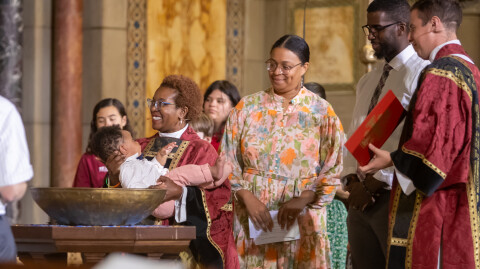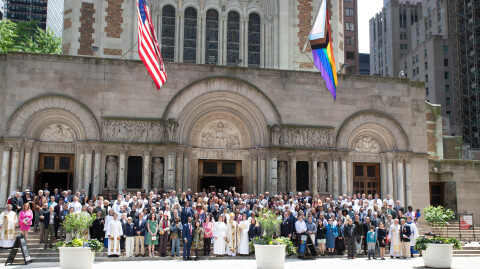Dear Ones,
As we celebrate Halloween (a.k.a. All Hallows’ Eve, or All Saints’ Eve) on October 31, our Lutheran siblings, along with many other Protestants, will be celebrating Reformation Day, on which Martin Luther nailed his Ninety-five theses on the door of All Saints’ Church in Wittenberg in 1517. It was a regrettable day for Christian unity, but a rewarding day for the sake of many theological values which continue to influence the church catholic, including our Episcopal Church — values such as the ministry of all the baptized, worship in the vernacular, and an inherently progressive disposition towards the life of faith.
At the heart of Luther’s teaching was, in Latin, “simul justus et peccator”, the notion that in Christ we are simultaneously saints and sinners: Complicated. Imperfect. Impure. Holy. Beloved. Blessed. It is a deeply countercultural reality to embrace in a society that seems to have increasingly little capacity and tolerance for paradox and complexity, writ large. Perhaps in no way is this reflected more than by political forces on both the right and the left that demand complete ideological purity and detest the slightest hint of nonconformity.
Of course, the bad news is that each name on the ballot this November represents a hypocrite, just like the person to our right and to our left at the altar rail on Sundays. The good news is that we are in good company in this Communion of Saints (and Sinners)!
As our liturgical year nears its completion, we will enjoy a number of festal observances in something of a “Season of the Saints.” This Sunday, October 30, we will commemorate All the Faithful Departed, remembering all those we love but see no longer with the glorious Fauré Requiem at 11am, followed by a celebration of Día de los Muertos. Next Sunday, November 6) will feature a celebration of All Saints, as we give thanks for the heroes and sheroes in our lives and in the life of the church — past, present, and yet to come — every bit as complicated and beloved as you and me. Amidst the hustle and bustle of everyday life, we need space to remember, to reflect, to contemplate — and yes, also, to play! To that end, I cannot commend these gatherings enough.
You may have heard that the word hypocrite originated in Greek theatre and simply meant to “play a part.” Here at St. Bart’s we believe everyone needs a place. I invite you to find yours here in this community of holy hypocrites, sinners and saints, as we play our part in the unfolding drama of God’s amazing grace.
Peace,



